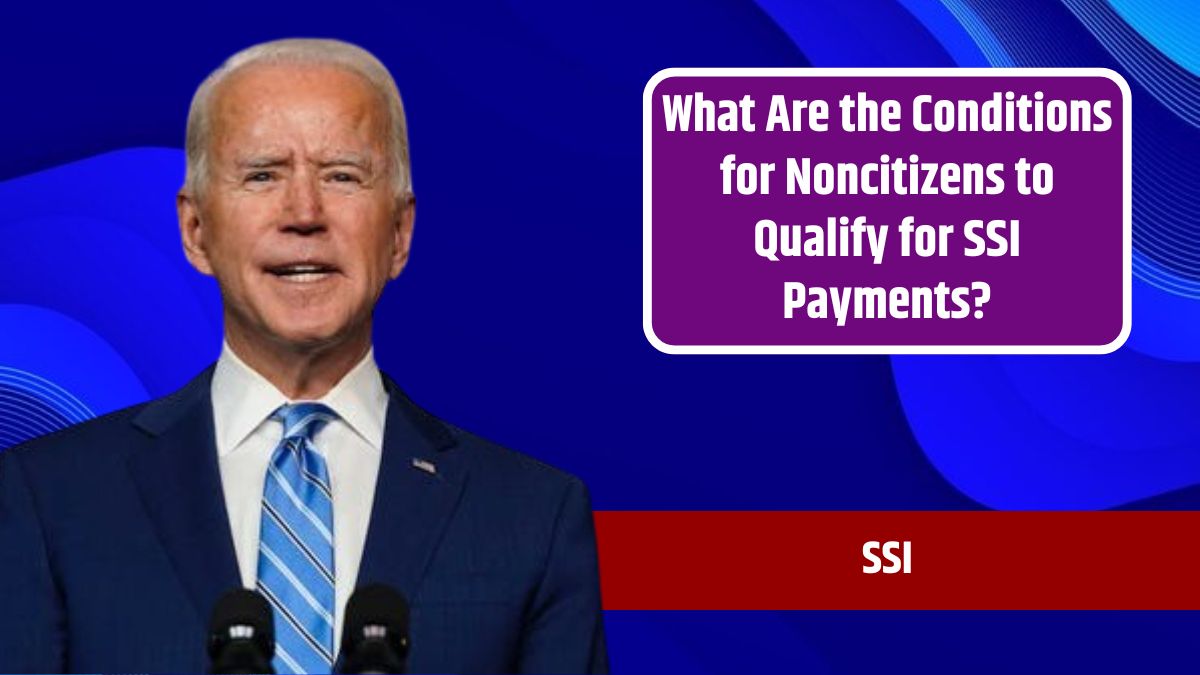Supplemental Security Income (SSI) is a vital program that provides monthly payments to individuals with low income who are aged, blind, or disabled. The maximum payment for eligible individuals can be up to $943. However, qualifying for SSI is not solely based on income; there are also residency requirements, particularly for noncitizens living in the United States. This article delves into these residency requirements and eligibility criteria for both U.S. citizens and noncitizens.
Eligibility
The rules for noncitizens to qualify for SSI payments have been stringent since August 22, 1996, when specific laws came into effect. Noncitizens must meet certain legal conditions to be eligible for SSI. These rules are in addition to the standard eligibility criteria that apply to all applicants.
Qualified Alien
To be eligible for SSI as a noncitizen, the first requirement is that you must fall into a “qualified alien” category. The Social Security Administration (SSA) defines “qualified alien” based on specific immigration statuses. These can include lawful permanent residents, refugees, asylees, and certain other categories of noncitizens who are lawfully present in the United States.
Conditions for Noncitizens
The second requirement is that noncitizens must also meet an additional condition that allows qualified aliens to receive SSI. This could involve having a certain number of work credits in the U.S., being a member of specific groups like veterans, or other qualifying criteria. These conditions ensure that SSI benefits are provided to noncitizens who have a significant connection to the U.S., either through work or specific legal statuses.
Even if a noncitizen meets these two essential requirements, they must still comply with all the other eligibility rules that apply to U.S. citizens. This includes income limits, resource limits, and other criteria that the SSA uses to determine eligibility for SSI.
U.S. Citizen Eligibility
For U.S. citizens, the eligibility requirements for SSI are more straightforward but still involve strict income and resource limits. SSI is designed to help low-income individuals who are aged 65 or older, blind, or disabled. Therefore, the SSA carefully examines both the income and the resources of applicants to ensure they meet the necessary thresholds.
Resource Limits
To qualify for SSI, U.S. citizens must have very limited income and resources. The SSA sets specific limits on these factors:
- Income Limits: If your income exceeds a certain amount, you will not qualify for SSI. The income limits vary based on individual circumstances, but the general principle is that only those with minimal income can receive SSI payments.
- Resource Limits: The SSA also limits the value of your assets or resources. For an individual, the resource limit is $2,000. If you are a married couple, your combined resources cannot exceed $3,000. These resources include cash, bank accounts, stocks, bonds, and other assets that can be easily converted to cash.
If you are a parent applying for SSI on behalf of a child, these resource limits increase by $2,000. It’s important to note that not all resources are counted. For example, the SSA does not count the home you live in, one vehicle, and certain other assets when determining your eligibility.
Applying for SSI
Whether you are a U.S. citizen or a noncitizen, if you believe you meet the requirements for SSI, it’s crucial to apply through the official SSA channels. You can check your eligibility or start the application process by visiting the SSA’s official website.
Knowing these requirements is essential for anyone considering applying for SSI. The program is a lifeline for many low-income individuals, but it comes with specific rules and conditions that must be met.
FAQs
What are the income and resource limits for SSI eligibility?
Income must be minimal, with resource limits at $2,000 for individuals and $3,000 for couples.
Can noncitizens qualify for SSI benefits?
Yes, but they must be in a qualified alien category and meet additional conditions.
What is the maximum SSI payment for eligible individuals?
The maximum SSI payment can be up to $943 per month for qualified individuals.
Do noncitizens have additional requirements for SSI eligibility?
Yes, they must meet both the qualified alien status and specific conditions related to that status.
How can I apply for SSI benefits?
You can check your eligibility and apply on the SSA’s official website.
